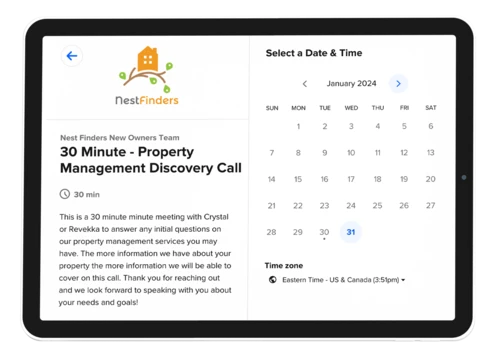Jacksonville, Florida, is quickly emerging as a prime destination for experienced landlords and renters searching for the perfect rental property in the Sunshine State.
With rapid growth in its housing market and a steady influx of new residents, understanding landlord entry rules is more crucial than ever.
Whether you're a tenant safeguarding your privacy or a property manager aiming to stay compliant, being clear on legal responsibilities helps avoid conflict and supports a strong landlord-tenant relationship.
A common area of confusion is knowing when a landlord can legally enter a tenant’s apartment and under what conditions.
Since states require prior notice in most cases, Florida law outlines specific standards for entry, including how many days notice must be given and when a landlord’s permission is needed.
This comprehensive guide breaks down state laws, clarifies the notice landlords must provide, and helps both parties understand their rights when accessing a rental unit.
Landlord Rights: When and Why a Landlord Can Enter
Under Florida law, a landlord generally has the right of entry into a tenant’s unit for legitimate reasons, such as:
- Conducting repairs or sending repair workers
- Performing inspections
- Showing the unit to prospective tenants or potential buyers
- Enforcing lease agreement provisions
- Handling emergency situations
However, this landlord access must occur within reasonable hours, typically during normal business hours, unless otherwise agreed upon in writing.
A landlord must provide notice, specifically giving proper notice, before entering for non-emergency reasons.
Tenant Rights: Privacy, Peace, and Legal Protection
Tenants have a right to quiet enjoyment of their rented home. That means no unauthorized entry, intrusion without permission, or interference with personal property or daily life.
Suppose a landlord fails to follow legal procedures or enters without providing written notice. In that case, tenants can refuse entry and may even pursue legal action for breach of privacy, emotional distress, or damage to belongings.
Under Florida’s Residential Landlord-Tenant Act, tenants can seek legal recourse through various channels such as:
- Filing complaints with the local housing authority
- Engaging legal assistance
- Filing a claim in small claims court
Florida State Laws: Entry Rules and Responsibilities
Florida's state laws set clear guidelines about when and how a landlord can enter a rental unit:
1. Notice Requirement and Timing
Landlords must provide written notice to tenants at least 12 hours in advance before attempting to enter the property for inspections, repairs, or to show the unit to prospective buyers or tenants.
This advance notice must state the reason and be scheduled during reasonable hours, usually 7:30 AM to 8:00 PM.
2. Emergency Situations
In genuine emergencies—such as a fire, gas leak, or severe water damage—a landlord may enter a tenant’s home without prior notice or the tenant’s permission, but only to mitigate the emergency.
3. Entry for Showings
When a lease nears expiration or if the property is listed for sale, the landlord may request to gain access to show the unit to potential buyers or prospective tenants. Even then, they must follow the required notice period.
4. Tenant Absence or Abandonment
If it appears a tenant has abandoned the unit or is unreachable for an extended period, the landlord may seek a court order or rely on terms in the rental agreement to enter the property.
5. Legal Entry vs. Unauthorized Entry
Unauthorized entry, excessive visits, or entry without permission can breach tenant rights. If a landlord enters repeatedly without proper notice, tenants can document such behavior and take action to prevent future unauthorized entries.
Your Lease Agreement: Read Carefully and Understand Your Rights
Many lease agreements include detailed entry terms. Tenants should read the lease agreement carefully to determine when and how their landlord may request entry.
While local laws and state laws provide a foundation, the rental agreement may include additional stipulations on:
- How much notice is required
- What qualifies as a valid reason for entry
- Whether tenants must allow access for non-urgent maintenance
Always ensure that lease terms align with legal standards. If they don’t, Florida law will override unfair or unlawful provisions.
Handling Unwanted Entry: What Tenants Should Do
If a landlord continues to enter your home without proper notice, here’s how you can respond:
- Document Everything – Record dates, times, and reasons given (if any) for each unwanted entry.
- Communicate in Writing – Remind your landlord of Florida’s notice requirement and your rights under consumer and business affairs protections.
- Contact Authorities – File a complaint with your local housing authority if issues persist.
- Pursue Legal Action – With documentation, you may file suit in small claims court or seek other legal resources.
- Strengthen Your Case – If the intrusion caused emotional distress or property damage, your case may be even stronger.
Best Practices for Landlords and Tenants
Clear communication and respect are key. Here’s how both parties can avoid conflict:
Landlords and property managers must follow best practices when accessing a tenant’s home. They should always provide written notice and limit entry to normal business hours.
Respect the tenant’s security measures and personal property, and only enter under specific circumstances permitted by law. Never access the unit without permission unless responding to a genuine emergency.
For tenants, it's important to understand your rights under state laws and stay informed about what qualifies as lawful landlord entry. Be cooperative when given reasonable notice, but don't hesitate to communicate if you need to reschedule or deny access for valid reasons.
Always document entries and keep records of all related correspondence to protect your rights and ensure clear communication with your landlord.
Know Your Rights, Protect Your Home
Understanding when a landlord can enter your home is vital for protecting your rights and maintaining a lawful tenancy. Jacksonville renters and landlords alike must follow Florida's guidelines, from giving proper notice to understanding what counts as legitimate reasons for access.
Violating these terms can lead to legal recourse, eviction proceedings, or, worse, irreparable damage to the relationship between the parties involved.
Don’t risk costly mistakes or legal missteps—partner with Nest Finders professionals. As a landlord, you need expert guidance to navigate compliant landlord entry practices and protect your rental property.
We precisely handle every detail, ensuring your responsibilities are met legally and respectfully.
Reach out today🤝—where expert property management meets peace of mind and long-term success.
Additional Resources
Navigating Tenant Rights During Property Renovations in Jacksonville
How to Evict Someone in Florida: Following the Law for Landlords




